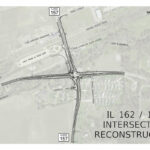This guide provides a comprehensive overview of accessing property records in DuPage County, Illinois. Whether you’re a homeowner, prospective buyer, legal professional, historical researcher, or simply curious, understanding how to navigate these records is essential. This guide will cover the role of the DuPage County Recorder, available document types, online and in-person access methods, and tips for successful research.
Understanding the DuPage County Recorder’s Role
The DuPage County Recorder’s Office (https://recorder.dupageco.org/) serves as the official custodian of all real estate records within the county, dating back to its inception in 1839. This office plays a vital role in maintaining accurate and accessible property records, ensuring a clear chain of ownership and protecting property rights. The Recorder’s commitment to preserving these documents provides a valuable resource for understanding the history of land ownership and transactions within DuPage County.
What Documents Does the Recorder Maintain?
The Recorder’s Office maintains a wide variety of property-related documents, offering a comprehensive picture of a property’s history. Key record types include:
Core Documents:
- Deeds: These documents legally transfer property ownership from one party to another. They’re crucial for establishing the chain of title.
- Mortgages: These records document loans secured by real estate, outlining the terms and conditions of the loan.
- Releases/Satisfactions of Mortgage: Proof that a mortgage has been fully paid off, releasing the lien on the property.
- Liens: Legal claims against a property for unpaid debts, which can affect its sale or transfer. These can include mechanic’s liens, tax liens, and judgment liens.
- UCC Filings (Uniform Commercial Code): Liens related to business transactions, often involving personal property used as collateral.
Additional Documents:
- Mortgage Assignments: These documents record the transfer of mortgage ownership from one lender to another.
- Judgments: Court orders affecting a property, such as foreclosure or ownership disputes.
- Plats: Detailed maps of land subdivisions, showing property boundaries and easements.
- Easements: Legal agreements granting the right to use another’s property for a specific purpose, such as access to a shared driveway or utility lines.
- Property Tax Records: Information on property tax assessments, payments, and delinquencies. (See the DuPage County property tax portal: https://propertylookup.dupagecounty.gov)
- Lis Pendens: Public notices of pending legal actions that may affect the title of a property.
Accessing DuPage County Land Records
The Recorder’s Office offers multiple ways to access property records, catering to various needs and research preferences.
Online Access:
Records from March 16, 1961, onward are digitized and available online 24/7 through the Recorder’s digital imaging system. (https://www.dupagecounty.gov/elected_officials/recorder/search_re…). This convenient online access allows you to search by name, address, document type, or book and page number. The online system also provides tools for zooming in and out on documents (Ctrl + and Ctrl -) for improved readability.
Step-by-Step Online Search Guide:
- Access the Website: Visit the DuPage County Recorder’s website.
- Find the Search Tool: Locate the “Search Documents” or “Start Recording” link, typically found on the Recorder’s homepage.
- Choose Your Search Method: Select how you want to search: by name, address, document number, or book and page.
- Enter Search Terms: Input the relevant information, ensuring accuracy in spelling and formatting. Use wildcards (e.g., Sm*) for broader searches.
- Review Results: Examine the results carefully, paying attention to dates and document types to find the specific information you need.
- Access & Download: Click on the relevant record to view, download, or print. Be aware of any associated fees.
In-Person Access:
For records prior to March 16, 1961, or if you prefer a hands-on approach, you can visit the Recorder’s Office in Wheaton, Illinois. Public access terminals are available for conducting research, and staff members are on hand to provide assistance.
Recorder’s Office Information:
* Address: 421 N County Farm Rd, Wheaton, IL 60187
Mail Requests:
Records can also be requested by mail. Contact the Recorder’s office for the required information and procedures. Associated fees may apply.
Tips for Effective Research
- Be Specific: Use precise search terms whenever possible. Knowing the full name, property address, or document number will drastically narrow down your search and save you time.
- Use Wildcards: When unsure of the exact spelling or full details, use wildcards (like an asterisk *) in your searches.
- Check Variations: Historical records may contain variations in names or addresses. Try different spellings or formats.
- Understand Terminology: Familiarize yourself with common real estate terms.
- Contact the Recorder’s Office: Don’t hesitate to reach out to the Recorder’s Office for assistance. Their staff are knowledgeable about the records and can provide valuable guidance.
Additional Resources and Considerations
While the DuPage County Recorder offers comprehensive resources, other platforms, such as FindMyPast, may provide additional genealogical or historical context. However, the official Recorder’s website is the most authoritative source for property records.
Be aware that while these records are generally public, some information may be restricted due to privacy concerns. Always use the information ethically and legally.
Ongoing Developments and Future Possibilities
The field of record-keeping is constantly evolving. The DuPage County Recorder’s Office may adopt new technologies like blockchain in the future to enhance security, accessibility, and efficiency. These advancements could potentially revolutionize how we interact with property records, making research easier and more secure.
Unearth a Treasure Trove of Historical Insights
Unlock the history of DuPage County properties by exploring these valuable land records. Whether you’re tracing your family roots, Comal County Judicial Records, conducting legal due diligence, researching local history, or simply curious about a property, the DuPage County Recorder’s Office provides the resources you need. This comprehensive guide is your starting point to uncovering the stories behind DuPage County properties, connecting the past with the present. For broader historical research, consider exploring resources like the Carteret County Register of Deeds for additional insights.
- Amazing March Fun Facts: Unveiling History & Celebrations - April 15, 2025
- Master how to write height: A complete guide - April 15, 2025
- How High Are Your Standards Test: Find Your Perfect Match Now - April 15, 2025
















